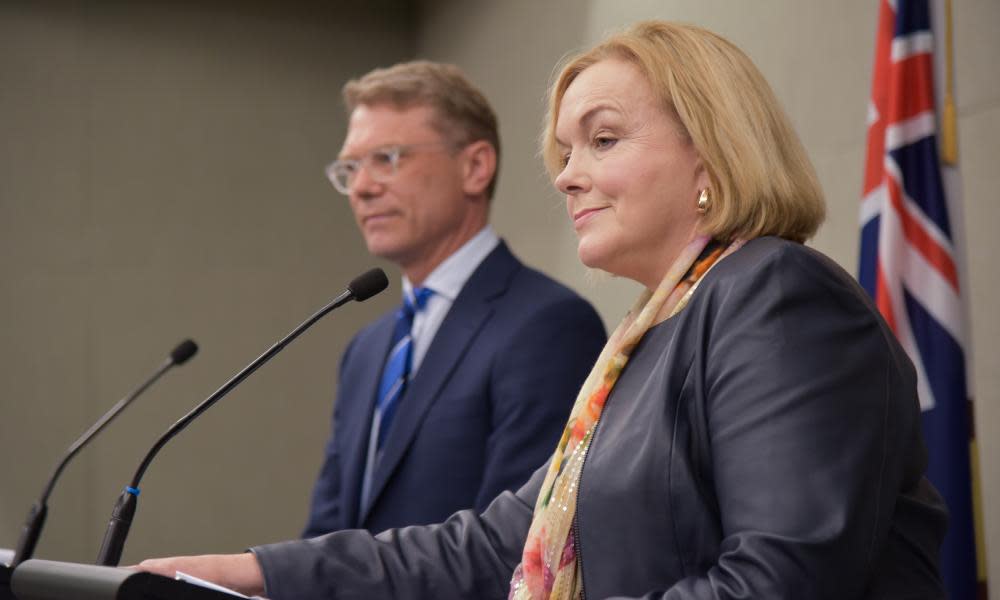New Zealand National party promises 'significant' tax cuts to aid Covid recovery

New Zealand’s opposition National party has released its plan to restore the economy, a day after the country officially entered a recession.
National said the plan would see the average worker in New Zealand be NZ$50 a week better off, with the party promising “significant tax cuts”.
Since the lockdown in March, tens of thousands of people have lost their jobs, including at the country’s previously best-performing businesses, such as The Warehouse and Air New Zealand.
Many small businesses or those in the tourism sector are on the verge of collapse, and in the last quarter the economy plunged 12.2% – the biggest drop since such records began in 1987.
The opposition finance spokesperson, Paul Goldsmith, said his party would continue increasing investment in infrastructure and core public services, and introduce a short-term package of tax cuts – worth about $4.7bn, or around $50 a week.
Some $31bn would be spent on transport over the next 10 years, $1.1bn on education, $800m on health, $900m on social development and $170m in law and order.
“Throughout history, severe downturns have been a time when generational investments have been made that help set up future growth. National will make these much-needed historic investments,” Goldsmith said.
“But, unlike Labour, we recognise the need to act responsibly for future generations. The best path back to prudent debt levels is through an absolute focus on economic growth and disciplined spending, not higher taxes.”
New Zealanders who are laid off would also be able to access $20,000 of their superannuation to invest in a new business, he said, and be eligible for a $10,000 tax credit.
With National in government, spending would be tightened, Goldsmith said, and schemes such as KiwiBuild and Fees Free scrapped to return the country to surplus by 2028.
Labour’s finance minister, Grant Robertson, expressed scorn at the opposition’s fiscal plan, saying the party had lost their way and were promising the impossible to voters.
“National is a shambles, with multiple leaders, incoherent policy this year and growing factions,” Robertson said. “They both want to increase spending, reduce revenue and dramatically reduce debt. You can’t do all of those things at once credibly and I think their plan is lost somewhere in that triangle.”
Judith Collins took over the National party leadership in July, but political analysts have been surprised by a lack of energy on the election trail, with journalists travelling with her saying she appeared to lack her usual sparkle. “It’s almost like everyone is going through the motions, and their heart’s not really in it,” said an RNZ reporter.
Politicians have their hands tied somewhat by Covid-19 restrictions, with large public meetings banned and leaders having to speak to voters by phone, or at a safe distance.
Rallies or flashy stadium events are banned, making it hard for parties across the board to stoke excitement among voters.

 Yahoo News
Yahoo News 
